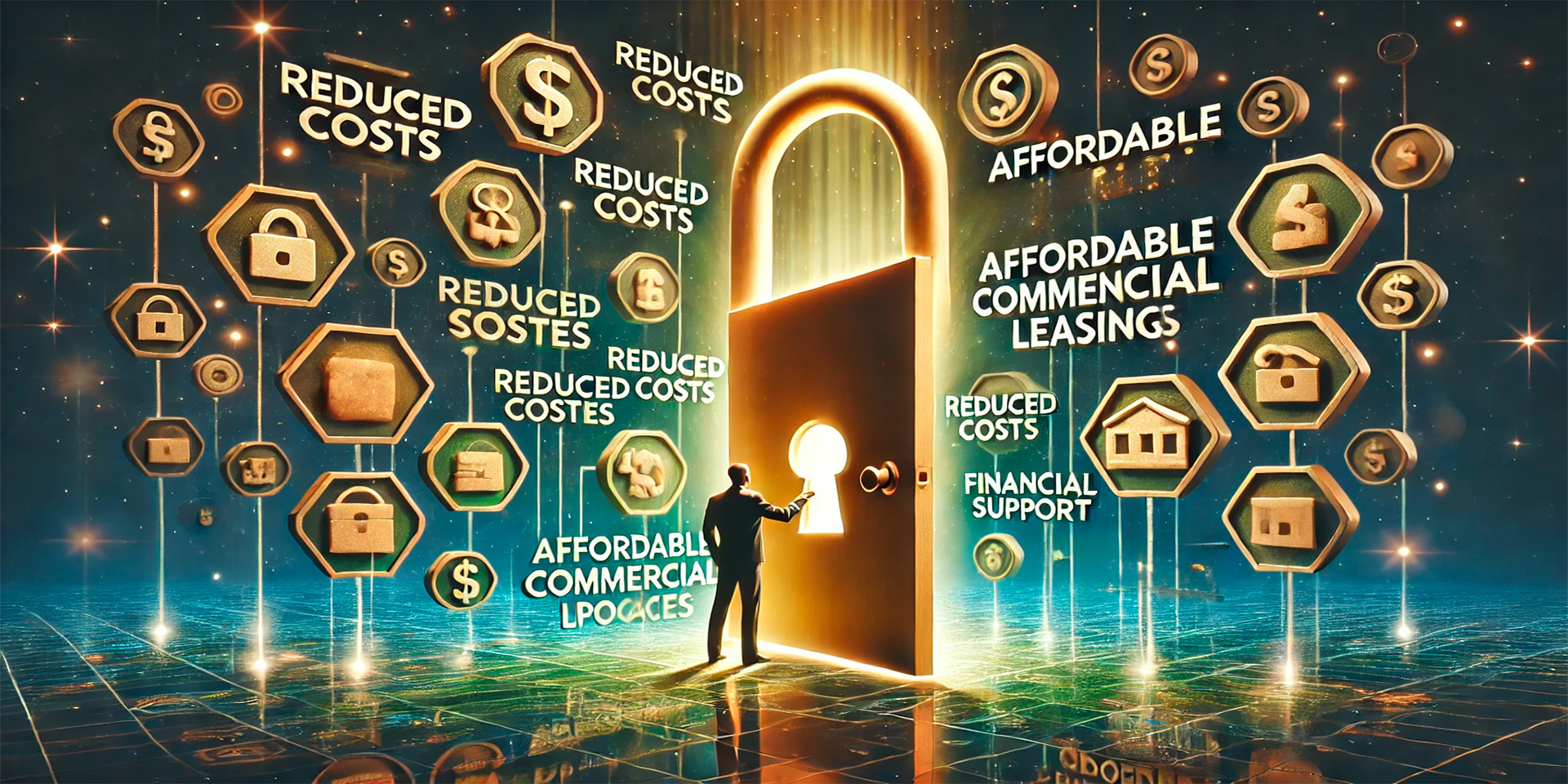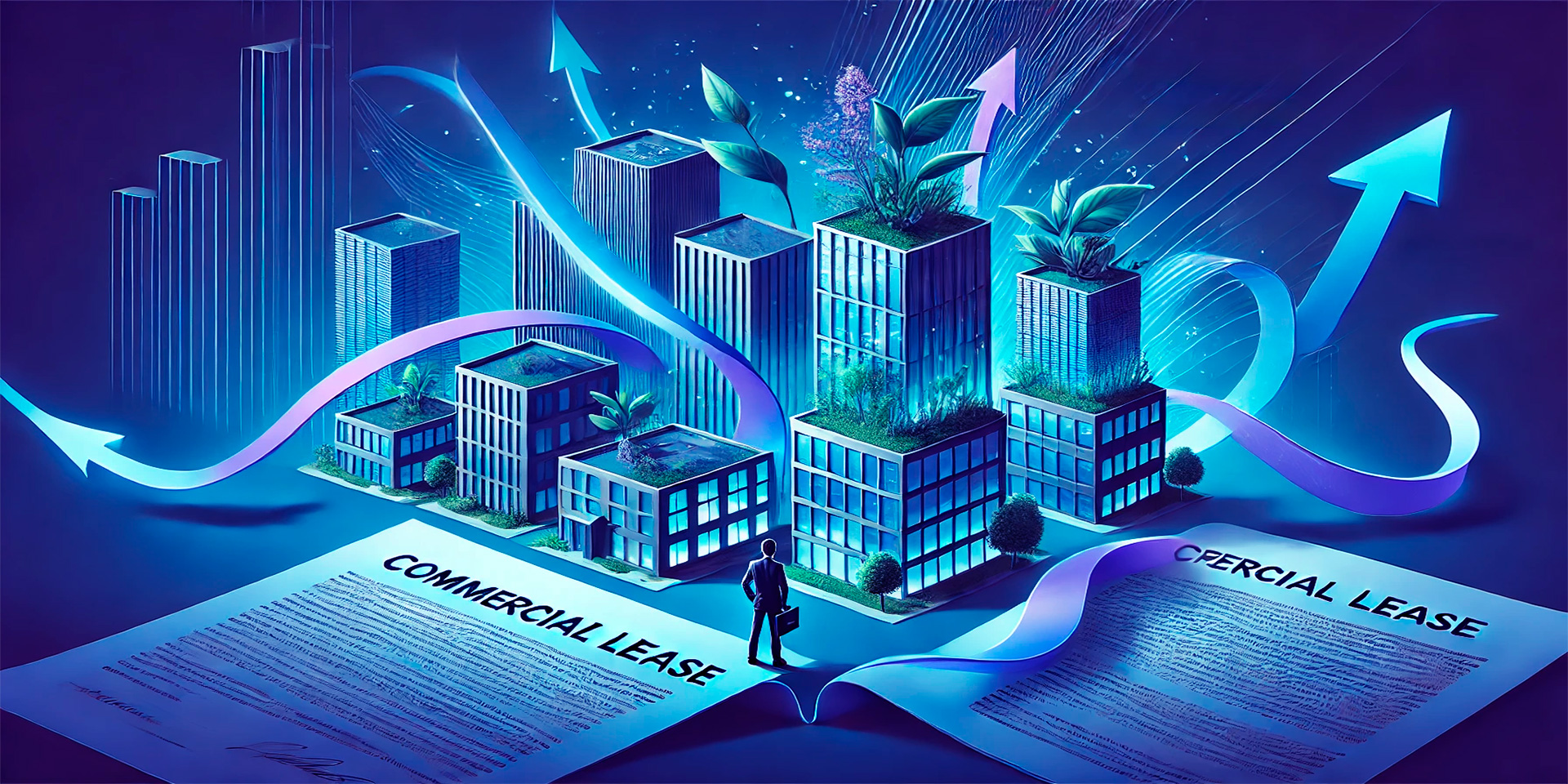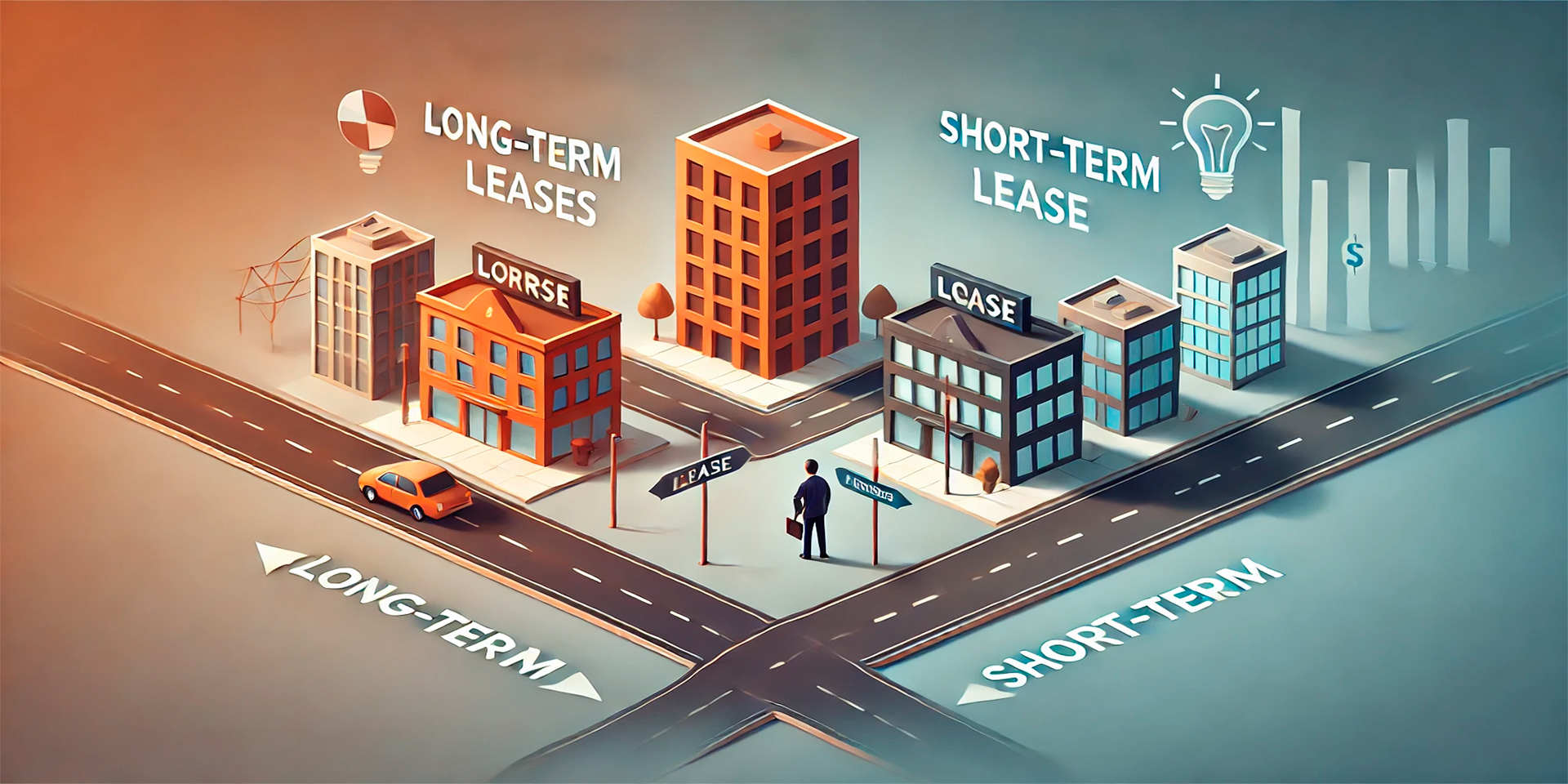For businesses looking to lease commercial property, navigating high rental costs, financial requirements, and other hurdles can be challenging. However, government programs exist to support businesses in leasing commercial space, making it more accessible and financially feasible. These programs can offer financial assistance, incentives, and resources that ease the leasing process and help businesses thrive in commercial spaces. In this article, we’ll explore how government programs are supporting commercial property leasing and which options are available to meet your business’s leasing needs.
Understanding the Role of Government Programs in Commercial Leasing
Governments, both at the local and federal levels, recognize the importance of helping businesses succeed, particularly when it comes to securing commercial property. Leasing commercial space can be a major expense for small and growing businesses, and securing the right property in the right location is often critical for long-term success. In response, various government initiatives have been developed to reduce financial burdens, provide access to favorable leases, and stimulate economic growth in underdeveloped areas.
These programs often include financial aid, tax incentives, and grants that support businesses in finding and leasing commercial spaces. Additionally, government programs may provide resources that assist businesses in navigating the leasing process, ensuring compliance with regulations, and accessing available financing options.
Government Financial Assistance for Commercial Leasing
Many businesses face financial challenges when it comes to leasing commercial property, particularly during startup or expansion phases. Recognizing these hurdles, several government programs are designed to offer financial assistance that makes leasing commercial space more affordable.
Small Business Administration (SBA) Loan Programs
The Small Business Administration (SBA) plays a significant role in providing financial assistance to small businesses seeking to lease or purchase commercial property. One of the SBA’s most popular programs is the 7(a) Loan Program, which offers flexible, long-term financing to small businesses for various purposes, including leasing commercial real estate. This program allows businesses to access capital with lower down payments and favorable interest rates, making it easier to secure a commercial lease.
Additionally, the 504 Loan Program is designed to provide long-term, fixed-rate financing for the acquisition or improvement of commercial real estate and equipment. While primarily focused on property purchases, 504 loans can also be used to refinance existing leases under certain conditions, providing relief for businesses looking to reduce their monthly lease payments.
State and Local Economic Development Grants
Many state and local governments offer grants and low-interest loans to businesses that commit to leasing commercial properties within designated economic development zones or areas that are part of revitalization projects. These programs aim to encourage businesses to move into underserved or economically struggling areas, stimulating growth and creating jobs.
Grants can be particularly beneficial as they do not need to be repaid, providing a direct financial boost to businesses seeking to establish themselves in commercial spaces. In some cases, businesses may qualify for matching grants, where the government matches the investment made by the business in leasing and improving commercial property.
Commercial Property Lease Subsidies
Some local governments offer lease subsidies to small businesses as part of their economic development strategies. These subsidies help offset the cost of leasing commercial space by covering a portion of the monthly rent, reducing the financial burden on business owners. Lease subsidy programs are often designed to attract businesses to specific areas, such as downtown districts, commercial corridors, or newly developed business parks.
These subsidies are particularly helpful for businesses in their early stages or for companies that are expanding but face high rental costs in their target locations.
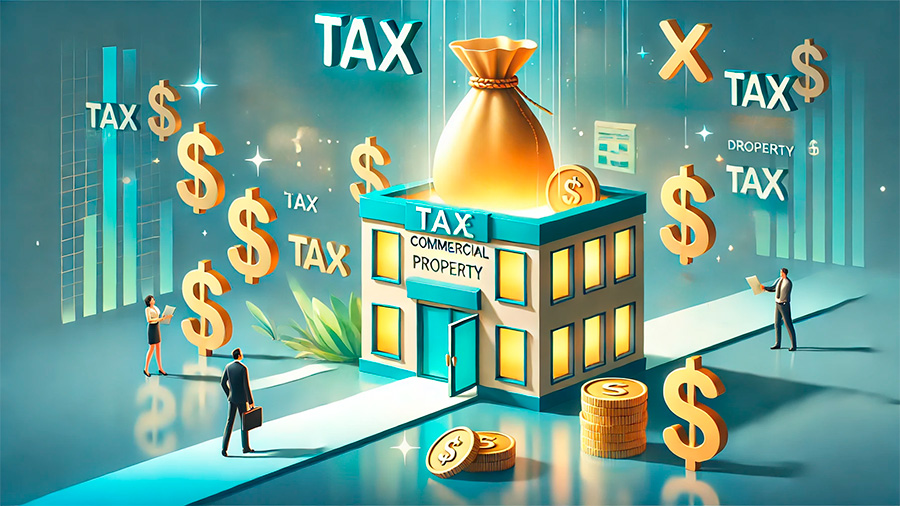
Tax Incentives for Leasing Commercial Property
In addition to direct financial assistance, many governments offer tax incentives to businesses that lease commercial property. These incentives can take the form of tax credits, deductions, or abatements that reduce the overall cost of leasing and make commercial space more affordable for businesses.
Commercial Property Tax Credits
Commercial property tax credits are designed to reduce the amount of property taxes that businesses pay when they lease or improve commercial real estate. Some states and municipalities offer tax credits for businesses that lease property in designated enterprise zones or opportunity zones, which are areas targeted for economic revitalization.
These tax credits can significantly reduce the financial burden on businesses, allowing them to allocate more resources toward growth, hiring, and expansion. In some cases, businesses may also qualify for brownfield redevelopment tax credits if they lease or improve commercial properties that were previously abandoned or contaminated.
Tax Deductions for Lease Improvements
Many businesses that lease commercial properties invest in tenant improvements to customize the space for their operational needs. Government programs often provide tax deductions for the costs associated with these improvements. For example, the Internal Revenue Code (IRC) Section 179 allows businesses to deduct the full cost of qualified leasehold improvements, such as new lighting, flooring, or partitions, in the year the improvements are made, rather than depreciating the cost over several years.
This tax deduction helps businesses reduce their taxable income and recover a portion of their investment in the leased property, making it more financially viable to lease and customize commercial space.
Programs to Support Commercial Leasing in Underserved Areas
Governments often focus on stimulating economic growth in underserved areas by offering leasing support to businesses that move into these regions. These programs not only provide financial assistance but also offer incentives that encourage businesses to create jobs and invest in local economies.
Opportunity Zones
The Opportunity Zones program is a federal initiative designed to promote economic development in distressed communities by encouraging investment in real estate and businesses located in these zones. Businesses that lease commercial property in Opportunity Zones may qualify for significant tax benefits, including capital gains tax deferrals and tax-free appreciation on long-term investments made within the zone.
By leasing commercial property in an Opportunity Zone, businesses can benefit from lower leasing costs while contributing to the revitalization of economically struggling areas. This program is particularly attractive to businesses that are seeking long-term growth and are willing to invest in improving their leased properties.
Enterprise Zone Programs
Similar to Opportunity Zones, Enterprise Zone programs exist at the state and local levels to encourage business activity in designated economically depressed areas. Businesses that lease commercial property in these zones can benefit from various incentives, including tax credits, reduced utility rates, and streamlined permitting processes.
These programs are designed to stimulate job creation and economic activity in areas that have historically struggled to attract business investment. By leasing property in an Enterprise Zone, businesses may be eligible for tax incentives that make it easier to expand their operations while contributing to the local economy.
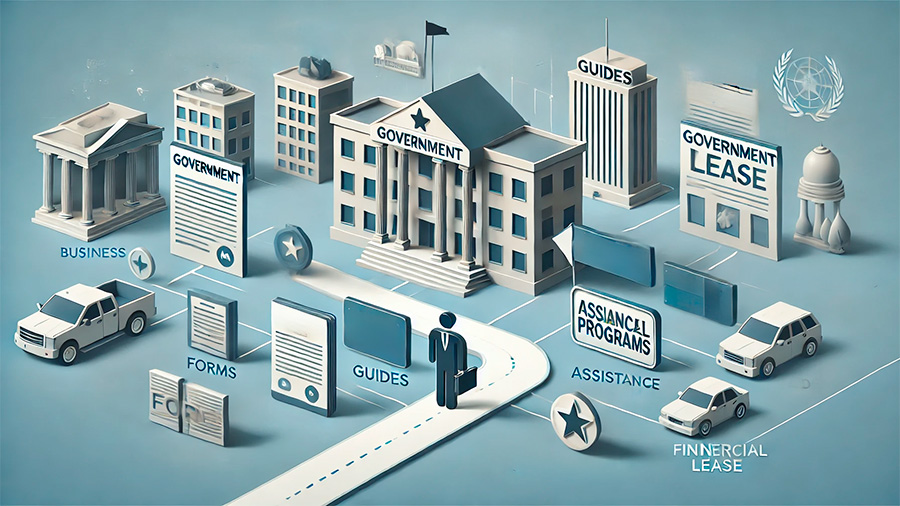
Government Resources for Navigating the Leasing Process
In addition to financial incentives and tax benefits, government programs offer resources and support services to help businesses navigate the complexities of leasing commercial property. These resources can provide valuable guidance on everything from lease negotiations to regulatory compliance.
Small Business Development Centers (SBDCs)
Small Business Development Centers (SBDCs), funded in part by the SBA, provide free or low-cost consulting services to businesses at various stages of development. SBDCs offer assistance with lease negotiations, site selection, and understanding local zoning laws, helping business owners find the right commercial space for their needs.
SBDCs can also connect businesses with financing options, including SBA-backed loans, and help them understand the various government programs available to support commercial leasing.
Economic Development Agencies
Local economic development agencies work closely with businesses to identify available commercial properties, navigate local regulations, and access financial incentives for leasing. These agencies often have detailed knowledge of available grants, tax credits, and low-interest loan programs that can help businesses secure favorable lease terms.
Economic development agencies also provide networking opportunities and support services that can help businesses establish themselves in new areas, particularly in zones targeted for economic revitalization.
Conclusion: Leveraging Government Programs for Commercial Leasing
Leasing commercial property is a significant financial commitment for businesses, but government programs can provide much-needed support, from financial assistance and tax incentives to resources for navigating the leasing process. Whether your business is looking to expand, relocate, or establish a new presence, these programs can help reduce the costs associated with leasing commercial space and provide the tools needed for success.
By taking advantage of SBA loan programs, state and local grants, lease subsidies, and tax incentives, businesses can secure commercial leases that align with their financial goals and growth strategies. Additionally, programs focused on Opportunity Zones and Enterprise Zones offer businesses the chance to contribute to local economic development while benefiting from significant cost savings.
Understanding and leveraging these government programs can make all the difference when it comes to finding and financing the perfect commercial space for your business.

